Bristol Clean Air Zone – two years on, what is the future of the CAZ?
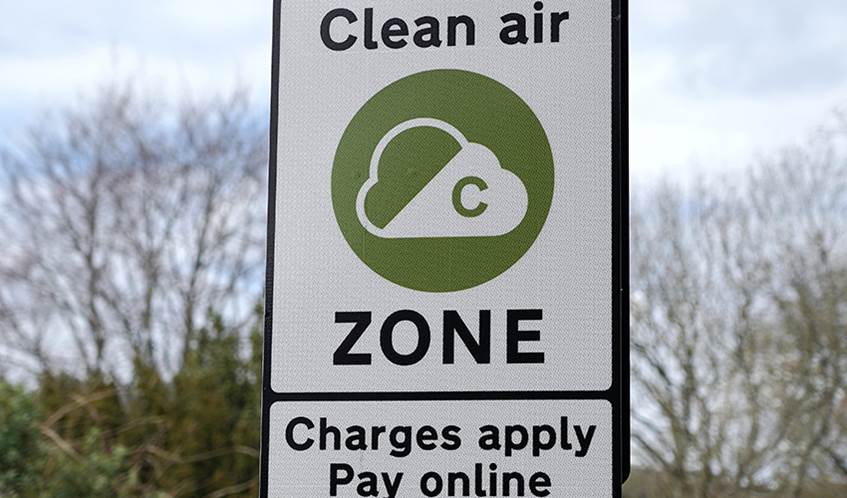
Professor Graham Parkhurst (Centre for Transport & Society) & Professor Jo Barnes (Air Quality Management Resource Centre)
We are ‘penning’ this piece almost exactly two years after Bristol City Council’s Clean Air Zone came into force, on 28 November 2022. The ‘CAZ’, as it is known, was needed along with other measures to achieve the minimum standards of air quality required by UK law, the most important of which is defined in technical terms as an annual mean concentration of Nitrogen Dioxide (NO2) not exceeding 40 µg/m3. Due to the extent of pollution in Bristol, the CAZ covers most of the busy historic centre of the city, but the exact boundary and rules also reflect consultation with local businesses and communities and needed central government approval. Bristol’s CAZ charges older, more polluting petrol and diesel vehicles. Unlike some other cities with a CAZ, such as Bath, Bristol’s includes private cars. In practice, most of the private cars affected are diesel cars first registered before 2016.
So, two years on, has the CAZ worked, and what is its future?
It’s fair to say that CAZs across the UK are an emergency measure. Had action come sooner it is possible it could have been less drastic. The vehicle pollution problem had been known about for years. The standards were meant to have been met in January 2010 (and local objectives by December 2005!). But successive governments overly relied on improvements in vehicle technology to solve the problem. Events like the ‘dieselgate’ scandal showed this approach was far too optimistic. Still, it took an environmental pressure group, ClientEarth, which won a High Court case against the government, to force decisive action.
The High Court ruling resulted in a ‘direction’ from national government instructing local authorities to reduce NO2 “in the shortest time possible”. Bristol was one of the local authorities across England directed by the government’s Joint Air Quality Unit (JAQU) to create a CAZ for this purpose in 2017, although local political agreement for a CAZ in Bristol had already been reached through a full council motion a year earlier.
Although the CAZ is now two years old, it takes time to process the air quality and traffic data collected across the city. We do know from a summary report published by the council after the first year of operation that reductions in NO2 were found both inside and outside the CAZ boundary (9.7% on average across the whole city; 12.8% decrease within the zone and a 7.8% decrease outside of the zone). But travel was still recovering from the COVID-19 pandemic, so it was hard to be sure how far the reductions reflected the CAZ, or the reduced travel. There are indications, though, that when the second-year assessment report is published it will show an even larger decrease in pollution, with traffic for 2023 back to 95% of pre-COVID levels. With more working from home apparently being a permanent behavioural change resulting from the pandemic, this level of traffic may represent the ‘new normal’.
Despite this good news, the need for the CAZ is ongoing. There are still particular locations which do not meet the required standard. And achieving them just once is not enough. Due to variations in weather and traffic, JAQU requires local authorities to demonstrate compliance with the limits for three years before the CAZ is seen to have fully worked. Also, some vehicle owners with non-compliant vehicles will currently be choosing not to use them in the CAZ, due to the daily fee. If the CAZ is removed too soon then those more polluting vehicles might come back, pushing pollution levels up again.
The CAZ doesn’t remove all air pollution. It simply addresses the areas of cities with the worst problems, and only for NO2. Arguably, tougher standards, affecting a wider range of vehicles (and pollutants), should be considered. But over the longer term, there will be fewer and fewer internal combustion engine vehicles on British roads as they are gradually replaced by electric vehicles. The government’s Zero Emissions Mandate has rising annual targets. More than half the cars sold by each manufacturer in 2028 must have no exhaust emissions at all, which in practice means they must be purely electric. This is good for reducing air pollution, but electric cars still need road and parking space and result in congestion and road danger. In eventually moving beyond the era of the CAZ, do we want to build on the principle that car use needs to be managed in the wider public interest? Or is the individual right to drive more important?
Related news

12 December 2025
UWE Bristol’s environmentally conscious and student-focused accommodation wins three awards
Purdown View, the world's largest certified Passivhaus student accommodation development, has been recognised at Property Week Student Accommodation Awards.
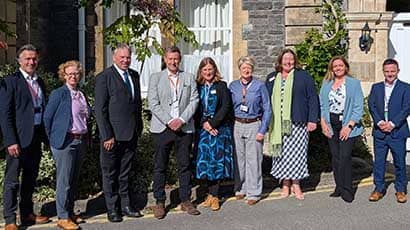
13 November 2025
Alliance Medical and UWE Bristol launch UK’s first PET-CT postgraduate certificate
In a move set to transform imaging education, Alliance Medical (AML) and UWE Bristol have joined forces to co-design and develop the UK’s first PET-CT Postgraduate Certificate (PG Cert).

10 November 2025
Lessons from Low Traffic Neighbourhoods will drive better public engagement, study finds
Lessons from Low Traffic Neighbourhoods have informed a new toolkit to improve engagement with the public on challenging local street issues.

29 September 2025
Smartphone use hitting struggling pupils hardest, major study finds
Young people struggling with their studies at school are much more likely to have negative experiences on their smartphones than their better performing peers, a major new study has found.

11 September 2025
New study to investigate augmented reality as an intervention for emotionally based school avoidance
A UWE Bristol researcher will support a new study exploring whether an augmented reality board game can help young people with emotionally based school avoidance (EBSA).

28 July 2025
Student wins bronze medal at World Aquatics Championships on her graduation day
UWE Bristol sports rehabilitation student Izzy Thorpe made waves at the World Aquatics Championships winning a bronze medal in artistic swimming on the same day she was meant to be crossing the stage at her university graduation ceremony.

28 May 2025
Leading organisations fighting to end youth violence in cities join UWE Bristol event panel
Leaders from Bristol-based Empire Fighting Chance and Canadian non-profit REACH will speak at the next Bristol Distinguished Address Series.
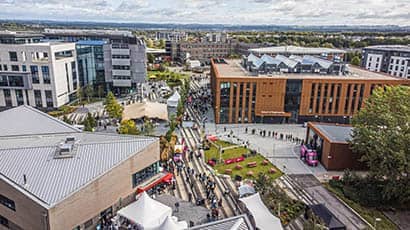
09 May 2025
UWE Bristol among first universities in UK to introduce sanitary waste bins in male toilets
UWE Bristol is among the first universities in the UK to introduce sanitary waste bins in male toilets for the disposal of incontinence products.

11 April 2025
UWE Bristol academics among emerging scientific leaders to receive share of £7.6m for health research
Two UWE Bristol researchers are among the recipients of a £7.6 million investment from the Academy of Medical Sciences aimed at tackling urgent health challenges.
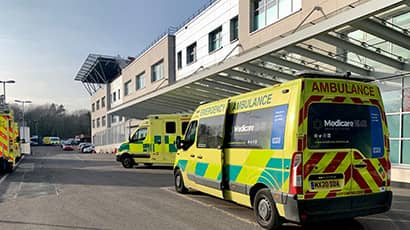
09 April 2025
New research to support a thriving health and care workforce is launched
A national research partnership will explore ways to support wellbeing and sustainability in the NHS and social care same day and urgent care workforce.

10 March 2025
UWE Bristol to explore the power of open water swimming at upcoming event with The Wave founder Nick Hounsfield
An inspiring tale of grit and resilience will be told to audiences at the first BDAS event of 2025 as UWE Bristol welcomes Nick Hounsfield, founder of The Wave.
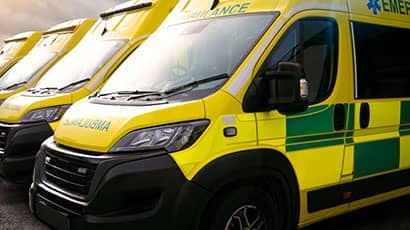
28 February 2025
Paramedics in GP surgeries may ease workload but not NHS costs, study finds
Paramedics working in GP surgeries help reduce GP workload but do not contribute to cost savings to the NHS, according to the first major study of the clinical and cost-effectiveness of paramedic compared with GP consultations.






